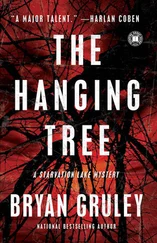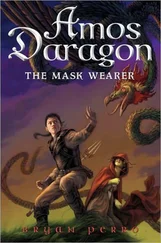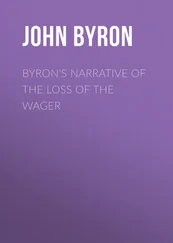Bryan Gruley - Starvation lake
Здесь есть возможность читать онлайн «Bryan Gruley - Starvation lake» весь текст электронной книги совершенно бесплатно (целиком полную версию без сокращений). В некоторых случаях можно слушать аудио, скачать через торрент в формате fb2 и присутствует краткое содержание. Жанр: Криминальный детектив, на английском языке. Описание произведения, (предисловие) а так же отзывы посетителей доступны на портале библиотеки ЛибКат.
- Название:Starvation lake
- Автор:
- Жанр:
- Год:неизвестен
- ISBN:нет данных
- Рейтинг книги:4 / 5. Голосов: 1
-
Избранное:Добавить в избранное
- Отзывы:
-
Ваша оценка:
- 80
- 1
- 2
- 3
- 4
- 5
Starvation lake: краткое содержание, описание и аннотация
Предлагаем к чтению аннотацию, описание, краткое содержание или предисловие (зависит от того, что написал сам автор книги «Starvation lake»). Если вы не нашли необходимую информацию о книге — напишите в комментариях, мы постараемся отыскать её.
Starvation lake — читать онлайн бесплатно полную книгу (весь текст) целиком
Ниже представлен текст книги, разбитый по страницам. Система сохранения места последней прочитанной страницы, позволяет с удобством читать онлайн бесплатно книгу «Starvation lake», без необходимости каждый раз заново искать на чём Вы остановились. Поставьте закладку, и сможете в любой момент перейти на страницу, на которой закончили чтение.
Интервал:
Закладка:
“Men?” he said. He never called us that. “Are you ready?” We lifted our wet heads to meet his gaze. “Ready for what, Coach?” one of us asked, and Blackburn shushed him. “Are you ready?” he said again. “You better be ready. Because tomorrow will be the biggest night of your life.”
I got an inkling of what he meant just before the next day’s game. The guys were warming up our backup goalie, and I was in a corner shoveling pucks out to the shooters when I noticed one of the Griffin coaches standing on their bench, gnawing on an unlit cigar in his black-and-orange Griffin jacket. He was watching Soupy. Soupy was skating tight figure eights, backward, with a puck on his stick, flipping it back and forth like it was glued to the blade, his head up, gathering speed as he circled. The coach leaned to his right and called another coach over. He said something to the other coach and gestured toward Soupy. They both nodded.
We weren’t invisible anymore.
As we played that night, word was getting around town that the Rats were about to beat a team from Detroit. Later I heard that Francis Dufresne had made a bunch of phone calls. Whenever play stopped, I glanced into the stands. It seemed as if more people were there every time.
By the start of the final period, the bleachers were filled. I hadn’t seen that since the Red Wing old-timers had come to town for an exhibition game. As we were lining up for a face-off just to my left, I heard banging on the glass behind me. I turned to see people lined up all along the glass, two and three deep, neighbors and friends and people I’d seen on the street and at church, some I’d never seen before. The game was tied at 2, and those people were pounding on the glass, shouting my name and my teammates’ names, yelling for us to hang in there, we could do it, we could win. As I turned back to the game, I slammed the heel of my stick into my catching glove and drew down into my crouch and I could feel my heart pounding, swelling as it never had before, and I knew that we could not possibly lose. And I knew that I’d known this even before the game had begun. Just as Coach had known.
With less than a minute to go in the game, we were still tied when a Griffin wing deked past a Rat at the blue line and swooped in alone on me. First he faked a shot, trying to get me to drop, but I held my ground as he fired a low, hard bullet to my left. The puck looked huge to me. I kicked my left leg out at precisely the right instant and deflected it across the ice. Soupy gathered it up in stride and bolted down the left side of the ice, the crowd shrieking, the clock counting down to twenty-nine seconds, twenty-eight, twenty-seven…Soupy charged into the Hawks’ zone and launched a rising shot that caught their goalie off balance. The puck caromed off his shoulder to Jeff Champagne, who had sneaked to a corner of the net, alone. He took a backhand swipe and knocked it in.
I’ve never heard anything louder than that rink at that moment.
Although we were eliminated in the state playoffs by Detroit’s O’Leary’s Heating, we knew we could play with anybody. Two seasons later, we made the state quarterfinals and fell to Byrd Electric, another Detroit squad, 5–3. When our bus pulled onto Main Street after the three-hour ride from Flint, everyone at Enright’s spilled outside to cheer us. We smiled and waved, but the older Rats-Soupy, Teddy, Stevie Reneau, Brad Wilford, me-knew we had just two years left to win that one big game before we’d be going off to college or jobs or whatever else the real world held. Coach seemed unfazed, though. Before we departed the bus that night, he told us yet again, “Losing is good for winning.”
We made it a step closer the next year, upsetting Paddock Pools in the quarters when Soupy scored on the end-to-end rush memorialized on the wall at Enright’s. We thought we’d finally get our shot. But in the semifinals we were routed, 7–1, by the Pipefitters, a street gang of a team from the steel-making furnace of downriver Detroit. It seemed like they were all big and hairy except for number 17, a scrawny winger named Billy Hooper who skated like his feet had touched molten metal. He scored four, and to this day I can’t remember seeing three of them until they were behind me. Even Soupy had trouble staying with Billy Hooper. We stayed downstate to watch the Pipefitters demolish O’Leary’s in the final, 9–2. Hooper scored three, assisted on two others, and was named MVP of the tournament. Late that night, our bus pulled into the high school parking lot where our parents sat waiting with the exhaust snaking around their cars and trucks. Coach stood at the front of the bus and called for quiet. Then he said, “Men-are you ready?” We knew what that meant. We filed silently off the bus.
Though we had yet to reach the ultimate goal, there was no doubt in our minds that we would in our last year together. In the meantime, our success against Detroit’s best hockey teams meant Starvation Lake wasn’t invisible anymore either. It was no longer just another town up north with a good breakfast joint and a smoky tavern. The town council bought a billboard on I-75 proclaiming Starvation as “Hockeytown North. Home of the River Rats.” Local kids begged us for autographs. Girls came from Sandy Cove and Kalkaska and Mancelona to hang out at our practices. Francis demanded our old sticks and skates to hang in Enright’s. Coach had River Rats caps and T-shirts and stickers made. The town turned blue and gold.
There was green, too. All those people from Detroit and Chicago and Cleveland and Milwaukee who came to Starvation for hockey saw how beautiful the place was and returned to buy lakefront lots and build cottages. Their money lured a McDonald’s and a Pizza Hut, a fudge shop, and two new souvenir stores on Main Street that hung Rats T-shirts in their windows. New business swamped the marina, and Soupy’s dad added a refueling station and a big section of dry dock. The town built a little zoo along the lakeshore where tourist kids could ride a miniature train past white-tail deer, red foxes, bobcats, and snapping turtles. New housing developments sprouted around the lake.
The money behind a lot of the building came from Francis Dufresne, who recruited Jack Blackburn as his pitchman. When the time came to persuade the town council to approve construction of this new motel or that new subdivision, Coach would don a sports jacket and his self-assured smile to present the plans to the council while Dufresne watched from the back of the audience, nodding with satisfaction as the council voted his way again and again. The two of them built Starvation Lake into a bona fide resort.
Everything changed after Coach’s accident. Whether from grief or inertia or bad luck, the town seemed to lose the momentum it had had. One summer, a faulty fuse box started a fire that shut down the marina just as the boating season was getting started. The next year, a putrid outbreak of algae left a gooey green slick floating on the lake surface. Sandy Cove and other towns started siphoning off the business. Dufresne and his new partner, Teddy Boynton, kept building, but they kept moving farther from Starvation, becoming silent partners in projects in other towns, even Sandy Cove. Eventually the hockey suffered, too.
The whole town had lost something. It wasn’t easy to pinpoint, but it was more than just a hockey coach. Jack Blackburn had showed Starvation Lake how to win. Somehow, without him, people forgot.
“Gus?”
The woman’s voice pierced the wind on South Beach. I turned to see Sheriff’s Deputy Darlene Esper, nee Bontrager, trudging through the snow toward me. I’d known her forever and could tell immediately that she didn’t want to be on that beach, talking to me. She’d come out of a sense of duty to someone who grew up with her, whom she’d once loved, who had broken her heart.
Читать дальшеИнтервал:
Закладка:
Похожие книги на «Starvation lake»
Представляем Вашему вниманию похожие книги на «Starvation lake» списком для выбора. Мы отобрали схожую по названию и смыслу литературу в надежде предоставить читателям больше вариантов отыскать новые, интересные, ещё непрочитанные произведения.
Обсуждение, отзывы о книге «Starvation lake» и просто собственные мнения читателей. Оставьте ваши комментарии, напишите, что Вы думаете о произведении, его смысле или главных героях. Укажите что конкретно понравилось, а что нет, и почему Вы так считаете.












